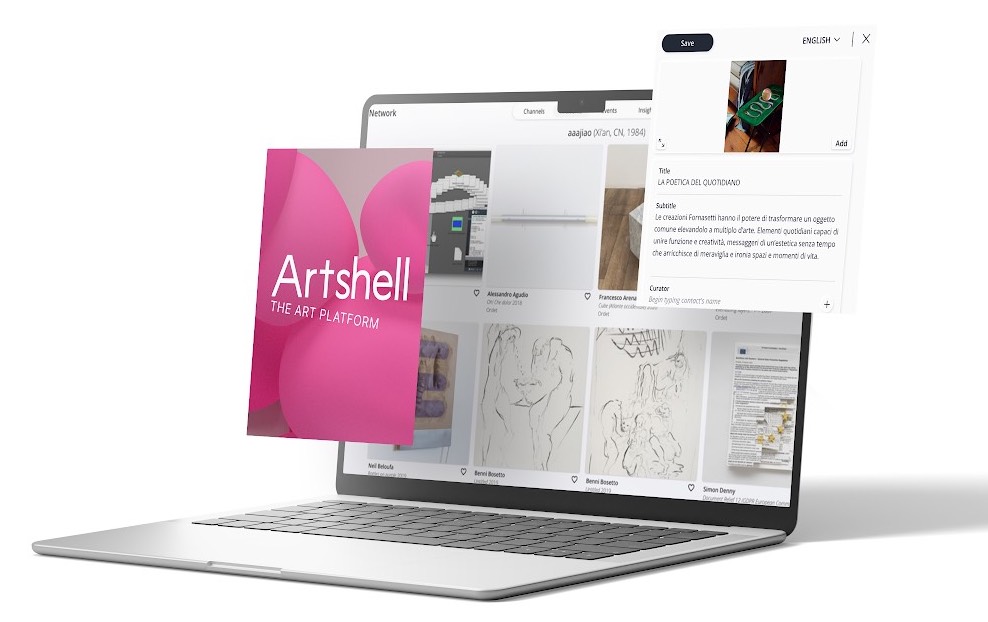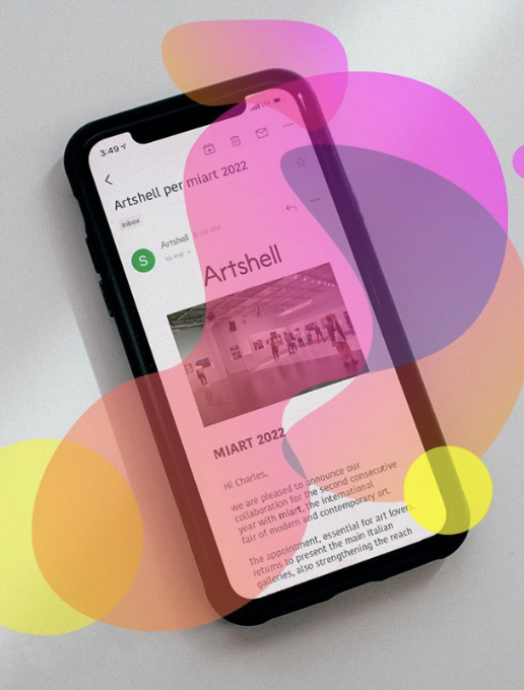Innovative technology makes professional art tools accessible
Milan-based Artshell is an art software development company that specialises in archiving and managing collections of artworks. The Covid-19 pandemic not only gave them new purpose but drove more innovation that would benefit art dealers and art fairs.
- By Mary Corrigall
---------------

Image Courtesy: Artshell
It isn’t surprising that Bernabò Visconti di Modrone appears buoyant and energised when we meet on a screen. His company, Artshell, had once again created the online platform for the recent Miart, one of the largest Italian art fairs that take place annually in Milan and Design Week was about to kick off. Milan is the heart of the creative industry in Italy. If you have had the pleasure of strolling through the Brera district of this city, which is lined with clothing and interior shops all boasting locally made products, you would have some idea of innovation and design nous that drives this city’s economy. This might not be Silicon Valley but it is the sort of place you would expect an art tech company to be birthed.
When Modrone founded Artshell in 2017 he was motivated to create the software and tools to archive and manage a collection of artworks that were beyond the reach of collectors and small art dealers.
“In 2017 the problem was that the available programs were complicated. They were professional tools for archives for governments, museums and big collectors. People did not have access to any easy tool to create their inventory or to easily manage their collection.”
Modrone also identified a need for galleries, which are small businesses largely, to have access to tools to archive, track and promote their inventory, whether through sharing PDFs or online catalogues or generating newsletters. Artshell was developed to meet all these various demands.
“We wanted to create a professional suite of tools. Creating an inventory is our core business. You can share part of your collection, which remains on the website. You can connect with customers or collectors. So, the idea was to try to help the art market with one single instrument,” says Modrone.
When the company was established in 2017, some in the industry could not have predicted how vital businesses like Artshell would be to sustaining sales and interactions. Naturally, when the Covid-19 pandemic took hold and art fairs and exhibitions and the trading and marketing of art migrated to online platforms, Artshell’s business evolved and grew.

Image Courtesy: Artshell
“Before the pandemic, the art market was completely different (to the one it is now) because galleries, collectors, perhaps only used 5% of the technology (that exists). Using technology wasn’t seen as being so important but after the pandemic that changed.”
With physical events unable to take place, digital platforms became the focus.
“Finally, the market understood that technology was not an enemy and it had the power to sell art online.”
Fortunately, Artshell was in the ideal position to exploit this openness to engaging with art online, but it had to quickly adapt to offer art fairs various new tools to engage with audiences.
South Africans might not be aware of their familiarity with Artshell, which generated an online interface for the Investec Cape Town Art Fair for its first online edition which took place during the pandemic. Artshell has continued with this relationship and will facilitate online engagement with virtual and in-person visitors to RMB Latitudes Art Fair.
This has remained an area of development, particularly since live art fairs have resumed and the online corollary to these events has had to assert its function to dealers and visitors.
“This period is really interesting because actually, no one has understood how art can be promoted or sold using a website. We are looking at the best way to adapt technology to this market. If you need to buy something really useful, there is Amazon where you can easily find everything. There are other conventions to manage the fashion market online. The art market doesn't have the right model yet. Everyone is trying to explore and find it,” says Modrone.
The role technology will play not only in the archiving and promotion of art but production too is still evolving, says Modrone. The rise and then fall of the NFT market and intense interest in the metaverse, which has now been overtaken by heightened awareness of AI could be evidence of this shifting space.

Image Courtesy: Artshell
Concerning developments in AI, Artshell have yet to harness machine learning in its products. Modrone suggests that the difficulty in applying it in the field of art relates to the fact that art objects are all unique and would require quite a rigorous classification scheme to identify similarities beyond the medium, size, or identity, or nationality of an artist. However, he seems confident that in time it will be possible to employ AI in a way that will enhance buying art.
Modrone hails from an art background, having previously managed a bronze casting studio in his native Milan. However, he considers Artshell a ‘tech company’, but admits that his first-hand knowledge of the art market has been essential to its growth and success.
“We have a really strong tech team. We are, of course, a small company compared to other big companies that work in the tech space. But, we know the art market so we know all the rules. We also know that businesses and people in this field are interested in the look and feel, the aesthetic aspects of online interactions. We also have an idea of what galleries and collectors need.”
Further Reading In Articles
African Artist Directory















